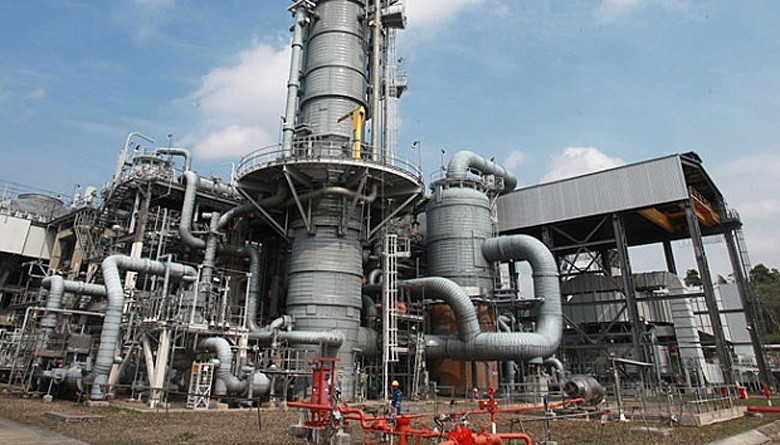Popular Reads
Top Results
Can't find what you're looking for?
View all search resultsPopular Reads
Top Results
Can't find what you're looking for?
View all search resultsSKKMigas approves BP’s carbon capture plan for Tangguh LNG
A carbon capture utilization and storage (CCUS) project at the Tangguh liquefied natural gas (LNG) plant in West Papua has been approved in what developers claim will make Tangguh one of the cleanest LNG plants in the world.
Change text size
Gift Premium Articles
to Anyone
A
carbon capture utilization and storage (CCUS) project at the Tangguh liquefied natural gas (LNG) plant in West Papua has been approved in what developers claim will rank Tangguh among the LNG plants with the lowest greenhouse gas (GHG) emission intensities worldwide.
British Petroleum (BP) as the operator of the plant announced on Monday that the Upstream Oil and Gas Special Regulatory Taskforce (SKKMigas) had approved a plan by BP and its partners to develop the Ubadari natural gas field and increase output at the Vorwata gas field using CCUS.
The new developments are expected to unlock additional recovery of 1.3 trillion cubic feet of gas from the new Ubadari Field and the enhanced Vorwata Field.
“The project is [expected] to play a major part in meeting [Indonesia’s] gas production aspirations while significantly reducing emissions,” BP gas and low carbon energy vice president Dev Sanyal said in a statement on Monday.
Indonesia has committed itself to reducing GHG emissions by 29 percent by 2030 in its Nationally Determined Contribution (NDC) under the Paris Agreement and to meeting at least 23 percent of its primary energy supply from renewable sources by 2025
Gas and renewable energy are predicted to form the backbone of the country’s energy mix by 2050, according to the National Energy Plan (RUEN), contributing 24 and 31 percent, respectively.
Read also: Gas integral to transition to clean energy: Gas industry
The Vorwata Field CCUS development is planned to inject 25 million tons of CO2 into the Vorwata reservoir to reduce carbon venting and provide additional gas production through enhanced gas recovery (EGR).
The CO2 injection is projected to remove up to 90 percent of the reservoir-associated CO2, according to BP, which represents roughly half of the Tangguh LNG emissions.
"This is in line with the Indonesian government's efforts to fulfill its NDC commitment," BP Asia Pacific regional president Nader Zaki said in a statement.
The front-end engineering and design (FEED) work for the Ubadari Field development and Vorwata CCUS is expected to start in mid-2022, subject to Tangguh partners’ and SKKMigas’ approval.
Meanwhile, the estimated project start-up in 2026 is subsequent to a final investment decision (FID), according to BP.
Read also: Badak plant and the future of Indonesia’s LNG industry
SKKMigas program and communication head Susana Kurniasih said the project could help meet several important government goals by delivering a significant production increase in the upstream oil and gas sector, reducing gas emissions and increasing investments.
“We welcome the [CCUS development] project approval,” Susana told The Jakarta Post on Tuesday.
Tangguh is currently the largest gas-producing field in the country, yielding 1.4 billion cubic feet of gas per day.
BP, as the operator of Tangguh LNG, works under a production-sharing contract (PSC) supervised by SKKMigas. The company owns a 40.2 percent stake in the project, on behalf of the other PSC partners, including China’s CNOOC and Japan’s energy firm Inpex.










